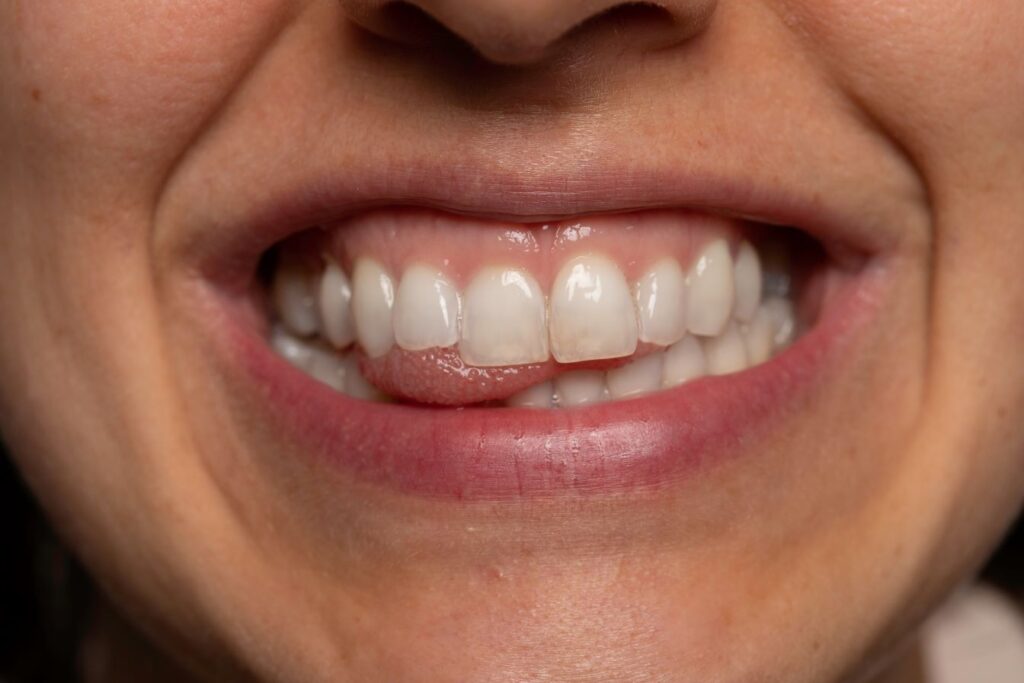
Sometimes your health can change without notice. Whether it’s a changing mole, a sudden headache, or a noticeable difference in the appearance of your gums, it is important to pay attention to the warning signs your body sends you.
If you notice your gums are appearing red, swollen, inflamed or puffier than usual, it could be cause for concern. Here are some common reasons why your gums could be changing, and what you should do to address it.
Gum Disease
Gingivitis and periodontitis are two types of gum diseases that are caused by bacteria in the gums. Gingivitis is an early-stage gum disease that can usually be reversed with proper oral hygiene practices. This means brushing twice a day, flossing at least once a day, and regularly visiting your dentist for your semi-annual exam and cleaning.
Periodontitis is advanced-stage gum disease that is not reversible. It can cause tissue and bone loss, loose teeth, and even tooth loss.
Warning signs of these include red, swollen gums, bleeding gums, and gum pain or sensitivity. If you notice any of these symptoms and they do not go away within a week or so, it is important to speak to your dentist, as periodontal disease can cause permanent damage.
Smoking
If you smoke, it can easily damage your gums and increase your risk of periodontal disease. Thus, it is very important to your oral and overall health to quit smoking as soon as possible. If you observe any changes in your oral health, schedule an appointment with your dentist to be evaluated.
Hormonal Changes
Hormonal changes like pregnancy and menopause can affect your gums. Pregnancy gingivitis is a common condition that can affect pregnant people regardless of whether they have great oral hygiene or not. Thankfully, this condition is usually temporary and should go away once the pregnancy is over; however, notify your dentist if you are expecting as it may be recommended that you visit more frequently during this time. Gum disease has been shown to cause low birth weight in babies, so keeping a closer eye on your oral health during gestation is always a good idea.
New Oral Hygiene Products
Sometimes when you start using a new toothpaste, toothbrush, or dental floss your gums might be a little sensitive at first. New brushes tend to have firmer bristles, so they may irritate the gums or cause them to bleed. Flossing can have similar effects, especially if you haven’t flossed in a while. Abrasive toothpastes or ones that contain harsh ingredients like peroxide can also cause a reaction to your gums, so switch brands if this occurs.
Medication
Some medications can cause hormonal changes or dry mouth, which can affect your gums. If you notice gum changes and are taking a new prescription, read the list of potential side-effects carefully. If your gums are in pain, speak to your doctor about your options. There may be a different medication you can try to remedy this.
Remember, your gums are living tissue, and as such are subject to changes with time. Sometimes these changes can be painful, while other times they may just look different.
Thankfully not all these conditions require dental intervention, however it largely depends on what is causing them. If you are concerned about the state of your gums, don’t hesitate to reach out to your dentist to be evaluated.
About Our Practice
At Wethersfield Dental Group we see the whole person, not just the mouth. We believe the key to good oral health is through education, both for the dentists as well as for our patients. Dr. Phadnis and Dr. Javed strive to help each and every person who walks through our door have a better understanding of how the condition of their teeth and gums can affect their entire body.
To schedule an appointment for any concerns about your teeth and gums, please visit our website or call us at 860-400-3007.

